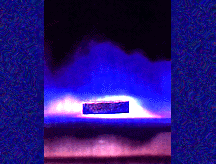 [
Wesleyan Home Page
] [
WesMaps Home Page
] [
WesMaps Archive
]
[
Course Search
] [
Course Search by CID
]
[
Wesleyan Home Page
] [
WesMaps Home Page
] [
WesMaps Archive
]
[
Course Search
] [
Course Search by CID
]
Academic Year 2002/2003
Human Biochemistry
CHEM 117 SP
This course will cover some of the basic aspects of human chemistry, biochemistry and molecular biology. The first part will focus on the chemistry and biochemistry of energy-producing processes, especially the
metabolism
of sugar glucose. Next we will study how organs such as the kidneys, liver and intestines and the nervous system interact to control the metabolism of sugars. A following section will cover evolution, particularly the
evolution
of metabolic pathways. The last section will study techniques of molecular biology and genetic engineering and how they are used to diagnose and treat disorders.
MAJOR READINGS
To be announced.
EXAMINATIONS AND ASSIGNMENTS
Weekly written assignments and two written quizzes.
ADDITIONAL REQUIREMENTS and/or COMMENTS
One class day each week is spent in cooperative/collaborative learning in which small groups work together. The use of illustrations to convey information is emphasized in all aspects of the course. This course cannot
be counted toward a chemistry
major.
The instructor of this course will not be using the on-line wait list. If you are interested in this course, please contact the instructor directly.
COURSE FORMAT:
Lecture/Discussion
REGISTRATION INFORMATION
Level:
UGRD
Credit:
1
Gen Ed Area Dept:
NSM CHEM
Grading Mode:
Graded
Prerequisites:
NONE
SECTION 01
- Instructor(s): Bolton,Philip H.
- Times: .M.W.F. 10:00AM-10:50AM; Location: SCIE0101
- Reserved Seats: (Total Limit: 20)
- SR. major: Jr. major:
- SR. non-major: 5 Jr. non-major: 5 SO: 5 FR: 5
Special Attributes:
- Curricular Renewal: Quantitative Reasoning, Reading Non-Verbal Texts, Focused Inquiry Course
Links to Web Resources For This Course.
Last Updated on MAR-18-2003
Contact
wesmaps@wesleyan.edu
to submit comments or suggestions. Please include a url, course title, faculty name or other page reference in your email
Copyright Wesleyan University, Middletown, Connecticut, 06459

